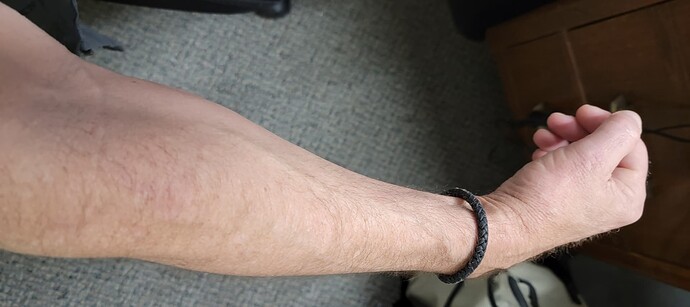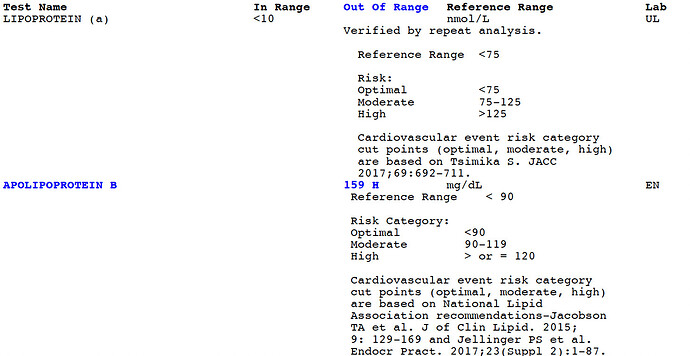i take the usual 5mg once a week (well, every 1-2 weeks i’m not super consistent). My oura ring before rapamycin put me at an average of 50 mins deep sleep a night. After rapamycin, i’d say it’s more like 1:15 average deep sleep. But then it could be that I have the new Oura ring as well. But I def feel like I’m getting more deep sleep. I’m 56 and generally healthy.
Just started 2Mg a week last week. Took first dose mid-morning and definitely felt sleep disturbance first night. Rest of week was fine. I am typically a good sleeper and use ‘sleep tracker’ every night. That first night I scored a 67 and usually am north of 80. Today I took 3mg, with grapefruit juice, as a step on the way to 6mg a week. I plan to take a melatonin supplement before bed tonight. We’ll see.
I found I had a little sleep disturbance if I took rapamycin in the afternoon - so now I just take it first thing in the mornings - and the problem has gone away.
I have been taking Rapamycin for 2 months weekly. I track sleep with an Oura ring. There has been no difference in my quality or quantity of sleep. Subjectively I don’t feel any effects on my sleep not even around the day of dosing.
For those who are experiencing some sleep disturbance I would suggest skipping coffee on the day you take your dose as they seem to have an additive effect.
For what it is worth Melatonin did the trick. Slept fine even with the bigger dose.
Hi…a couple studies in mice have reported treatment with rapamycin reduces sleep fragmentation…nothing in the literature regarding effects on sleep for humans. My personal experience…I have always slept well and haven’t noticed any change one way or the other since taking rapamycin for the past 9 months.
I have not noticed any change since starting Rapamycin, but I am still exploring dosing.
Separately, I did have issues with sleep onset, and found the addition of magnesium (600mg liquid magnesium chloride) just before bed extremely beneficial. I also take my zinc/Vitamin D at night as well, all three are associated with better sleep onset. I also wear an earmuff/blackout device to drown out noise and light, also very beneficial. And try to practice good sleep hygiene with a regular sleep schedule.
I have several sleep risk interventions, a ketogenic diet/one meal a day eating (impact on circadian rhythm), and I drink a lot of black coffee in the AM for satiation and ketone boosting (done by noon though). I still have some residual issues with awakenings during my sleep session, trying to hack.
I would caution using pharmacological methods to treat…they are highly associated with cognitive risk.
FWIW - I took my once a week 10mg and GF dose last night before bed and as has been typical since upping to a higher dose and using GF (the past month) - sleep was more like being in a “half-dream state”. I go out initally but wake all through the night and time seems really slow as I check the clock during my more wakeful moments. An hour feels like it was much more. This occurs only on the night of my Rapa dose and then I sleep soundly the rest of the nights until the next time. I run on about 7 hours sleep - never get to bed before midnight up at 6:45 am. Even on Rapa dose night, I awake fresh and ready to go – dispite the disturbed waking pattern all night. Might just be my body’s response to the changes. Also, since going on Rapa my body fat is gone and my arms are pretty veined out all the time. Like I just came from a workout at the gym. On Rapa the next morning my veins go small and deep (this was on 6mg past year and same for 10 mg now) - veins not very noticeable at all. I don’t work out for 48 hours after my Rapa dose and then do a normal gym work out and my veins return and stayed fully pumped until the next time.

Have you tried taking your dose in the morning?
Generally I take my rapamycin before noon because I’ve found I would have difficulty falling asleep and staying asleep if I took it in the evening.
Dr. Green has also noted that for some people there is a stimulatory effect of rapamycin and generally I believe he recommends morning dosing.
To be honest – I haven’t had an interest in taking Rapa in the morning or day time.
I have only taken it before bed. Maybe it is just me, but I like the idea of Rapa initially working while I am in a rested - non-active state. As stated, sleep is not deep - but not uncomfortable and I wake ready to go. One additinal note: especially after the 1st year being on Rapa my dreams are more vivid - seemingly real - and easily remembered.
RapAdmin, you taking 20 mg every 10 days now? Why every 10 days and not every other week (14 days)?
Right now I’m taking 6mg with GFJ - so somewhere around 18 to 20mg or so, effective dose. I’ve got a lot going on right now - so dates / schedules slip sometimes. I take it every 10 to 14 days… I’m not religious about the schedule right now, just due to other work activities, etc.
Have you had any adverse side effects from your dosage?
No noticeable side effects at all, but my LDL is high - so I need to watch that and may restart statins.
Re LDL, as part of general lipid dysregulation?
And this was only after Rapamycin dosing? You controlled for other reasons?
Can you share your TG/HDL and remnant cholesterol and units? The latter is TC-LDL-HDL.
These are two very good proxies for CVD risk stratification.
My Total and LDL numbers have gone up about 50 points since starting rapamycin.
Here are the numbers (in a fasted state):
Here are my Lipo A, and APO B numbers:
My research on remnant cholesterol suggests that my level of approx. 14mg/dL puts me in the low risk category according to the studies I’ve seen (see below) - but my LDL numbers put me in a higher risk, as does my T.Chol/HDL Ratio.
RESULTS:
Median calculated remnant cholesterol was 0.40 mmol/L [interquartile range (IQR), 0.30 – 0.55 mmol/L] [15 mg/dL (12–21 mg/dL)] for underweight,
0.50 mmol/L (IQR, 0.37–0.71 mmol/L) [19 mg/dL (14 –27 mg/dL)] for normal weight
Stepwise higher remnant cholesterol was associated with stepwise higher myocardial infarction risk in a similar pattern for normal weight, overweight, and obese individuals. When compared with individuals with remnant cholesterol 0.5 mmol/L (19 mg/dL), individuals with remnant cholesterol 1.5 mmol/L (58 mg/dL) had hazard ratios for myocardial infarction of 2.0 (95% CI, 1.3–3.2) for normal weight
From this paper: Remnant Cholesterol and Myocardial Infarction in Normal Weight, Overweight, and Obese Individuals from the Copenhagen General Population Study
Why do you not workout after Rapa dosing, I’m curious…


